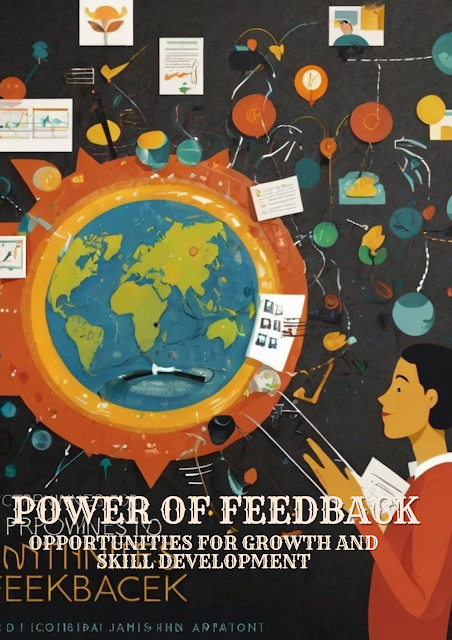The Power of Feedback: Opportunities for Growth and Skill Development
Feedback is an invaluable resource in the pursuit of professional and personal growth. While it can sometimes be daunting to receive critiques on your work, seeking feedback opens up numerous opportunities for development and improvement. Here’s a look at how feedback can be a catalyst for growth and skill enhancement.
1. Enhanced Self-Awareness
One of the primary benefits of receiving feedback is the boost in self-awareness it provides. Understanding how others perceive your work helps you gain insight into your strengths and areas needing improvement. This awareness is crucial for personal and professional development, as it allows you to focus on enhancing your skills and addressing any weaknesses.
2. Identification of Blind Spots
Even the most self-reflective individuals can have blind spots—areas where their performance may be lacking, yet they are unaware. Feedback from colleagues, mentors, or clients can reveal these blind spots, giving you the chance to address them. By uncovering these hidden areas, you can work on specific skills or behaviors that you might have otherwise overlooked.
3. Improved Performance
Constructive feedback often includes practical advice and actionable steps that can directly improve your performance. Whether it’s a suggestion on how to approach a task differently or tips on honing a particular skill, this input can lead to immediate enhancements in your work. Over time, incorporating this feedback can result in significant performance improvements.
4. Strengthened Relationships
Seeking and receiving feedback can help build stronger professional relationships. It shows that you value others’ opinions and are committed to personal growth. This openness can foster trust and respect among colleagues and supervisors, creating a more collaborative and supportive work environment.
5. Learning and Skill Development
It can highlight specific areas where further training or skill development is needed. For instance, if feedback indicates that your presentations lack clarity, you might take a course in public speaking. By addressing the feedback with targeted learning, you can develop new skills and improve existing ones.
6. Increased Motivation and Engagement
Positive feedback can boost your confidence and motivation, encouraging you to continue performing well. Even constructive criticism, when delivered thoughtfully, can be motivating as it provides a clear path for improvement. Knowing that others are invested in your growth can increase your engagement and commitment to your work.
7. Innovation and Creativity
Feedback can also spur innovation and creativity. Critiques often include fresh perspectives and ideas that you may not have considered. Embracing these new viewpoints can inspire creative solutions and innovative approaches to your work, pushing you to think outside the box and explore new possibilities.
8. Career Advancement
Incorporating feedback effectively can lead to career advancement. Demonstrating a willingness to grow and improve shows that you are proactive and committed to excellence. These qualities are highly valued by employers and can lead to increased responsibilities, promotions, and new opportunities within your organization.
9. Enhanced Problem-Solving Skills
Feedback often involves discussing challenges and how to overcome them. This process can enhance your problem-solving skills by exposing you to different ways of thinking and approaching issues. Over time, you’ll develop a more robust toolkit for addressing and resolving problems in your work.
10. Personal Growth
Beyond professional benefits, feedback can also contribute to personal growth. It can help you develop resilience, improve your emotional intelligence, and refine your communication skills. These personal attributes are essential for overall well-being and success in both your career and personal life.
Conclusion
Seeking feedback is a powerful strategy for growth and skill development. It enhances self-awareness, reveals blind spots, improves performance, and fosters stronger relationships. By embracing feedback and using it constructively, you can unlock your potential, drive innovation, and achieve greater success in your career. Remember, feedback is not just a tool for correction but a pathway to continuous improvement and excellence.









0 Comments